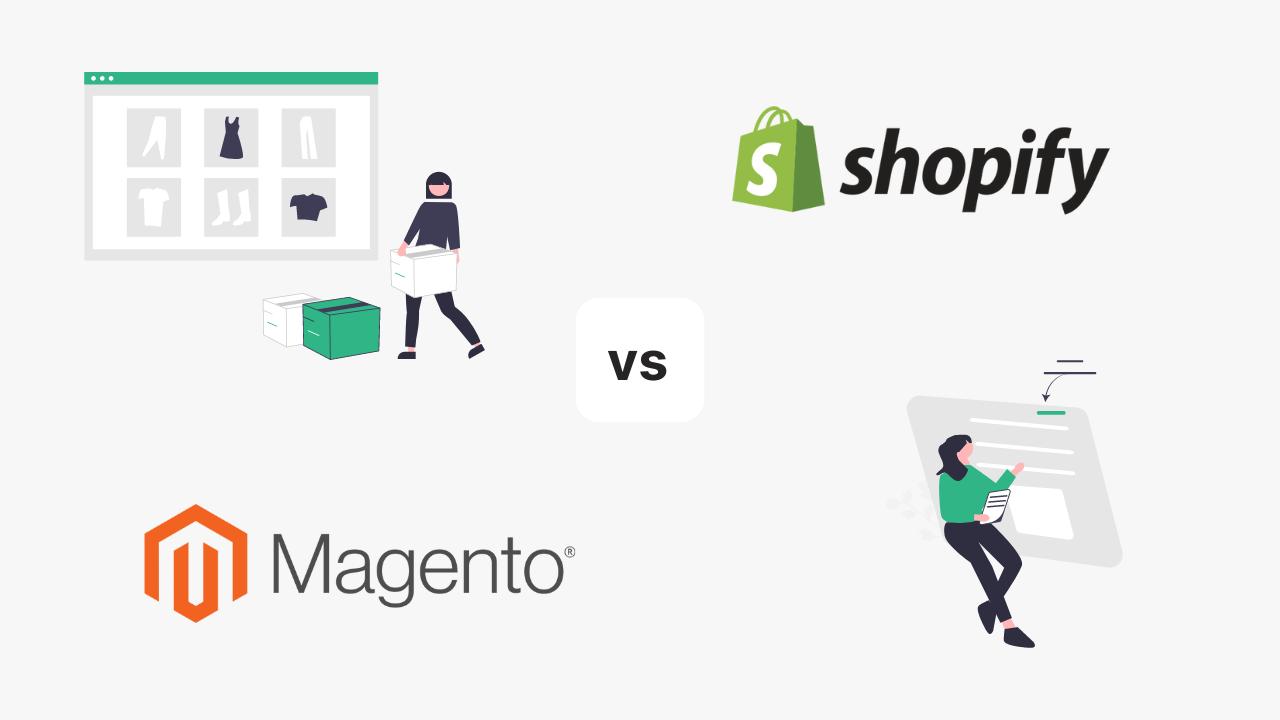Choosing the right platform for your eCommerce business is one of the most important decisions for your online business. All eCommerce platforms have their unique assets that can determine the success of your eCommerce store.
Shopify and Magento are the two biggest eCommerce platforms in the battleship for the best eCommerce platform. Their differences are large when it comes to specific areas such as development, ease of use, SEO, hosting, etc. In this article, we will point out the best features of each platform that can help you save time and get your eCommerce website results.





